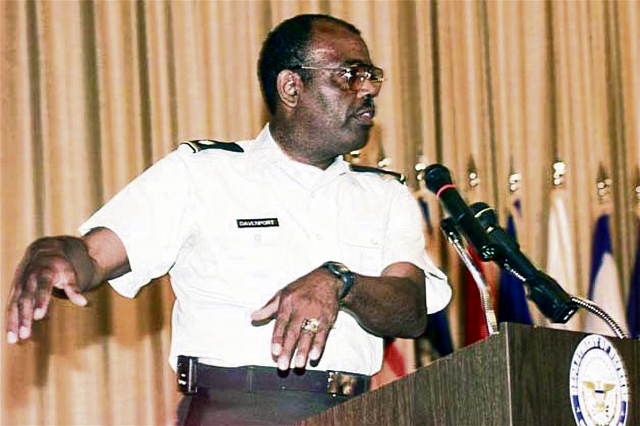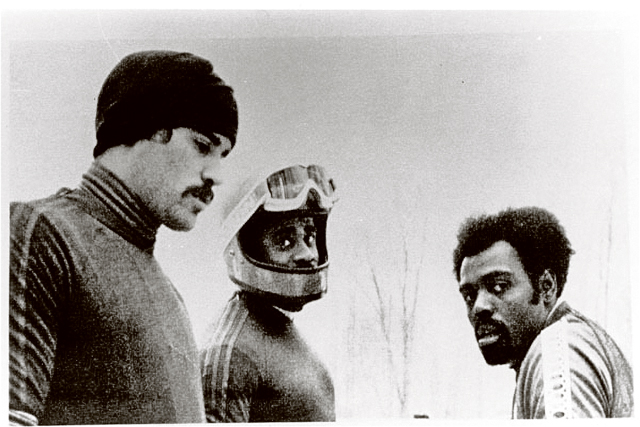
Willie Davenport competed in the Summer Olympics’ 110-meter hurdles in 1964, 1968, 1972 and 1976, winning a gold medal in 1968 and bronze in 1976.
Davenport also was one of the few athletes to participate in the Winter Olympics, competing in 1980 in the bobsledding event.
Besides having a successful athletic career, Davenport also made a career in the Army, first enlisting in 1961. His duty stations included Lee Barracks in Mainz, West Germany. He was honorably discharged in 1965.

Using his GI Bill, Davenport attended Southern University A&M in Baton Rouge, Louisiana. While in college, he joined the Southern Jaguars football team.
Davenport excelled at college football and was drafted by the New Orleans Saints as a wide receiver in 1969. He was also drafted by the San Diego Chargers later in 1969. However, he never signed a contract with either team.
In his 1980 try on the U.S. bobsled team at the Winter Olympics, his four-man team finished 12th.
“There is myth in this country that Blacks can’t make the Winter Olympic team. Jeff [Jordan] and I proved this to be wrong and that you don’t have to be rich and white to make it,” Davenport told “Jet” magazine in 1980. Jordan was on Davenport’s bobsled team.
In 1981, Davenport received a direct commission in the Louisiana Army National Guard. He later commanded the Oregon Army National Guard’s 741st Corps Support Battalion.

In January 1993, Davenport became the Army’s track coach. His duties not only included coaching, but also recruiting and assessing athletes who applied for the 70-member team.
“I have something to contribute. Not just because of my experience but because to be a coach you must be a teacher and a motivator. And I think I qualify,” Davenport said.
He coached the All-Army men’s and women’s track teams to an unprecedented four undefeated seasons from 1993-96.
“He really relished working with young people and helping them along. He understood how the Army’s sports program worked, said Army Chief Warrant Officer Dennis Loy.
The athletes who run in the summer and slide in bobsleds during the winter were important to him, but so were the young athletes. One indication of Davenport’s commitment to America’s youths, Loy said, was an annual celebrity golf tournament he held in Oregon. The proceeds provided college scholarships for young women.
Davenport became chief of the National Guard Bureau’s Office of Sports Management in September 1999. He had planned to retire before his 60th birthday on June 8, 2003, but he died of a heart attack on June 17, 2002.
Davenport was 59 and had attained the rank of colonel.


